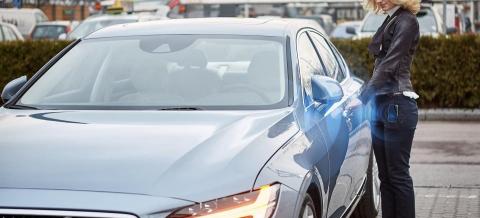On April 6, 2022, the deadline for filing the 2021 Income Tax return opens. How does buying a car affect the filing period? For the vast majority of people, the purchase of a car does not affect the declaration, except in the case of the self-employed who use the car to work, or in that of those people with disabilities or who have a person with a disability in their charge. . In this article we will explain the deductions that can be made in each case in the declaration.
For individuals who work as employees or are retired, the purchase of a new car in 2021 has no effect on the Income Tax return since it is a consumer good on which a tax has already been charged. series of taxes, essentially VAT of 21% and the registration tax from which models that do not reach 120 gr/km of CO2 emissions according to the WLTP protocol are exempt. The rest pay between 4.75% and 12.75% depending on their approved CO2 emissions.
To this general rule, however, there are a number of exceptions in specific problems. An example is that of people with disabilities. Whether the person with a disability is the driver or a direct family member who has that person in their care (the parents, normally in the case of a minor with a disability), the buyer of a vehicle can deduct 50% of VAT, an amount which will be relatively low since, in this case, the VAT paid when purchasing the vehicle is not 21% but 4%.
It should be borne in mind, however, that this deduction will be made only if the car purchased is new (neither used nor KM0 vehicles are included, since the latter, being already registered in the name of a company ( most of the time the dealership that sells it) are considered for all purposes as used cars despite the fact that they are brand new vehicles.
Can the self-employed deduct the purchase of a car?

In the case of self-employed professionals, things change whenever they use the purchased car to work, in the case of taxi drivers, carriers who work with vans, self-employed professionals who also use vans or salespeople who are not hired by any company. The self-employed will be able to deduct 50% of the fees (capital and interest) paid during the year object of the declaration, as well as 50% of VAT, both if the car is purchased as property or if it is paid under some of the new modalities rental type renting.
In the case of some specific professionals who use the car not to get around but as a regular work tool, full deduction of the VAT paid may be made. In this case, professionals such as taxi drivers and drivers of private passenger transport, commercial representatives or carriers are included. This group also includes the self-employed who teach driving. In all cases, the car must have been registered in the name of the self-employed professional who makes the declaration.
In the same way, maintenance expenses and up to 50% of fuel expenses may also be deducted, except in the case of carriers and taxi drivers, in which this deduction can reach 100%, provided that the fuel is used to carry out the job. This implies, for example, that a taxi driver will not be able to deduct the fuel costs of a personal trip during vacation times.
Assistance plans and company car

The aid granted by the Government in the purchase of new vehicles under the Renove and Moves plans, the latter limited to electric vehicles, must be declared to the Treasury as a capital gain and, therefore, are subject to tax. These amounts entered will increase the tax base that will be taxed according to the tax brackets.
Finally, in the case of company cars, they will be the ones that can deduct part of their cost. In the event that it is a car that the employee also uses in a private way, the Treasury considers that it is an income in kind that the user of the vehicle must pay tax as another income. This will be the case except in the event that the user uses it only for work and this can be demonstrated.
If the car used is in the name of the company, the Treasury considers that the worker must declare 20% of the annual cost of acquiring the car as income in kind and, therefore, pay this amount by adding it to the income from work received over the throughout the year. If the car is owned by a third party (an external leasing company, for example), that 20% will be calculated based on the market value of that vehicle. In the event that it is an electric car, or plug-in hybrid with a range of more than 15 km in electric mode, a 30% discount will be applied to the amount to be declared provided that the price of the car is less than 40,000 euros. . If the car is a hybrid, the reduction is 15% and if it is a diesel or gasoline car that emits less than 120 gr/km and costs less than 25,000 euros, 15% of the fixed amount can be deducted.
The tax calendar

Wednesday, April 6 is the start date for the Personal Income Tax (IRPF) filing campaign for those returns that can be filed online. As of May 3, you can request an appointment for the telephone filing of the tax return, which begins on the 5th of the same month, and on May 26, the period for requesting an appointment for in-person filing begins. The Tax Agency begins to serve users in person on June 1. The presentation of the declarations ends on June 30, although those people for whom the declaration is paid by direct debit must present the declaration no later than June 27.
It must be remembered that those who wish to file the tax return online must enter the Tax Agency’s website or the Agency’s own App and must have an electronic DNI, the corresponding electronic certificate and the PIN code or the number of reference. The latter can be obtained on the aforementioned portal by filling in a series of personal data.








